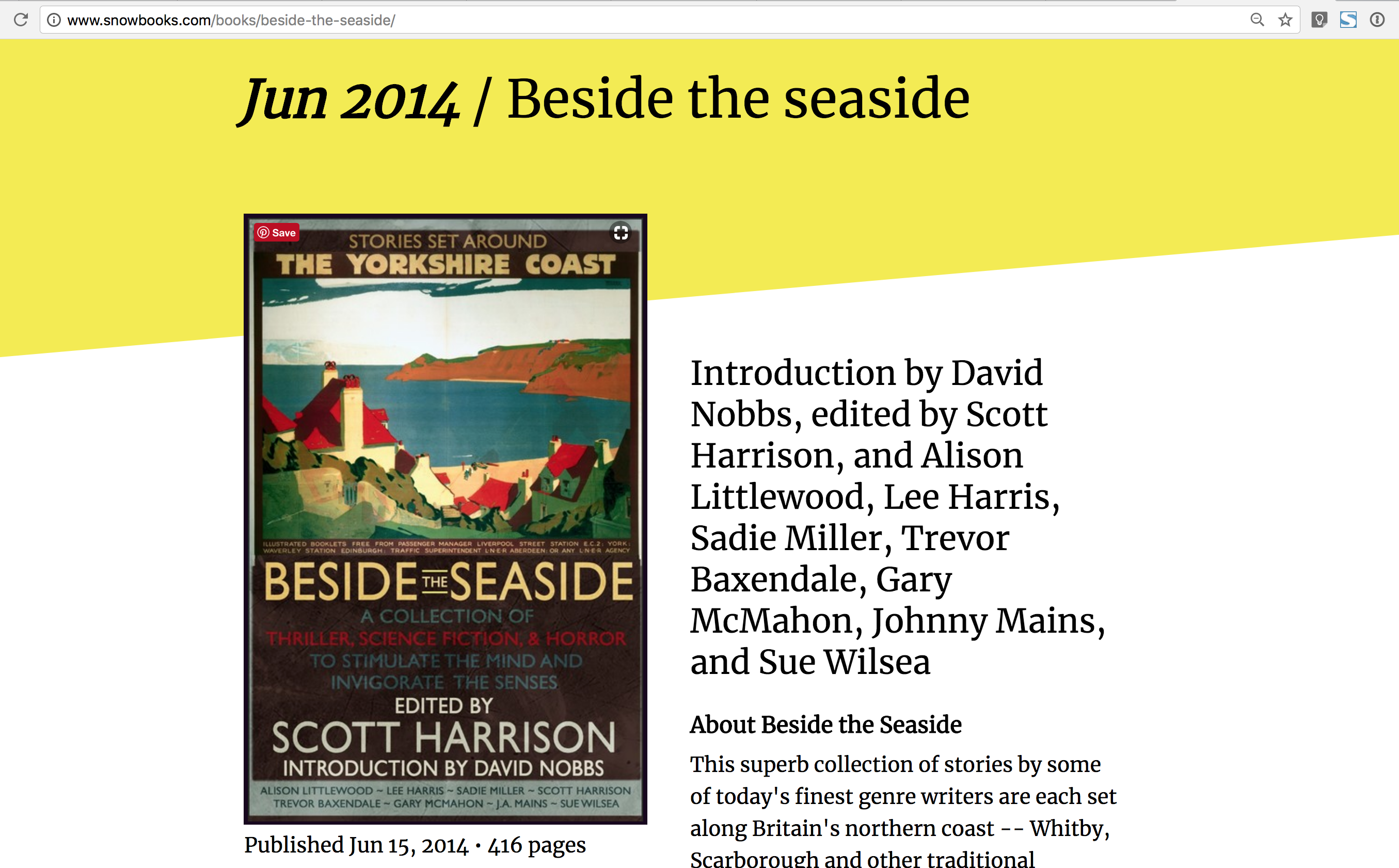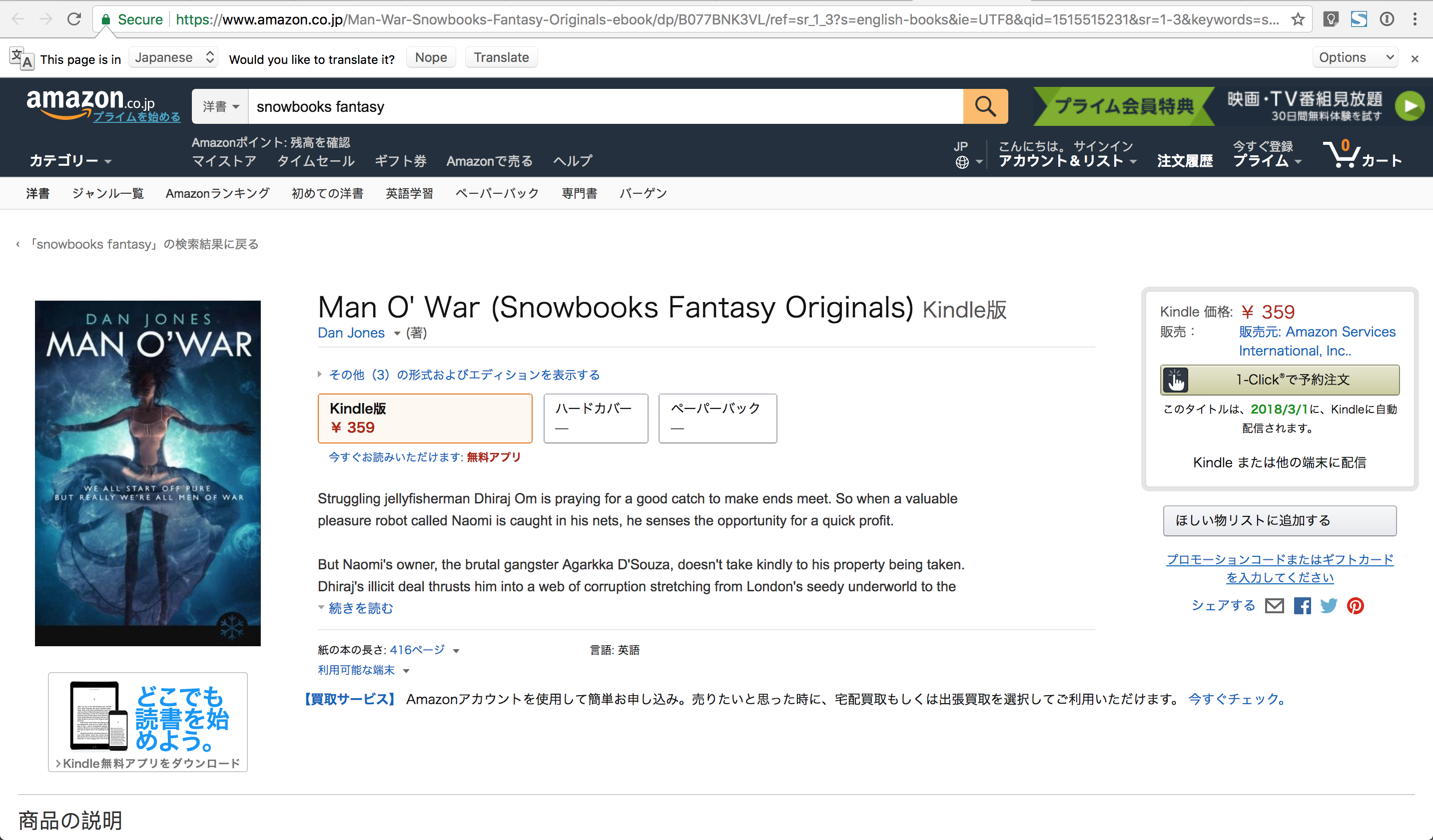I’ve noticed an interesting side-effect to using Consonance. If you use one of the features that presents data in a human-readable way, it completely alters your data-management-motivation levels.
Take websites. Over Christmas, I released the new Snowbooks.com website. From the design point of view, I hope it’s good: legible, navigable, easy on the eye, a great showcase for our wonderful books, and helpful for customers to be able to choose where they can shop.
(As an aside, from the technical point of view, it was a complete joy to write. It’s a Jekyll app, which is a way to write static websites. That means you use the Ruby programming language to combine data about your books with templates for the website to create all the HTML files on your computer, then upload the finished files to the internet – you don’t rely on a server to draw together data on the fly. And it uses the response from a request to Consonance’s API as its data source. As part of General Products’ Side Project Friday Afternoon Initiative, I’m preparing the code to be open sourced, so hopefully other people might consider writing adapters to other data sources. Drop me a line if you’re particularly interested!)
The point is that when I was developing this website, it made me want the pages to look good. I mean, I was spending time creating something which is our shop window. I wanted it to look as nice as possible. And, with that hat on, one’s eye is drawn to ugly blanks and missing data. Cue a big flurry of metadata updating, as I variously:
- uploaded higher-resolution images when the one I was pulling from Consonance was a bit on the fuzzy side
- made sure everyone was credited, and in the correct order
- made sure the latest reviews were front and centre

and, most interestingly
- came up with new series groupings of books which, post-publication, I decided sit together nicely on the page. Welcome to the world, Snowbooks Gothic, Snowbooks Fantasy Originals and friends! Which additionally appeared on websites around the world the next day, as ONIX carried the good news:

It might be a bit extreme to spark up brand new series on a whim, but it’s interesting how seeing your data presented in a new way can inspire new ways of looking at the list. And now the books are related to each other in a new and discoverable way in our ONIX.
Catalogues
As a minimum, it certainly makes you notice where data completion could be improved. Treasured client Pharmaceutical Press used an XML export from Consonance to populate their catalogue this week, and found the same thing as me: their bundled student packs now include images where previously the metadata hadn’t necessarily needed to be so rich. Their catalogue benefits from another image, and in the process, almost as a side-effect and certainly with no additional work, their metadata is that much richer.
Advance information sheets
The classic part of the system that prompts this sort of work is the advance information sheet. We’re all guilty of only getting our data up to date when we need it for the sales conference – and it makes it so much easier to see
data when it’s in a human readable format. I often output a whole bunch of AIs as a ZIP file in one go from Consonance, and flick through them on Finder on my laptop, to get a sense of whether I’m pleased with the blurbs, the pricing and so on.

Crowdsourcing quality
When you put your data into a human-readable format, you hope there’s a chance that a human other than yourself might read it. This is great: the more eyes the better. This just in from prized and beady-eyed author Jonathan Green:

The right format for the job
Consonance is not just about getting data into a format suitable for computers to share: just as valuable is getting data into a format that works for your brain. I’m a sucker for a pretty picture, but I’m happy that it’s improved my metadata quality.
Are your current systems sabotaging your growth ambitions? Are you hungry to implement new business models, but concerned you lack the strong administrative foundations needed for innovation?
We're always amazed at how resigned publishers have had to become to the low bar in publishing management systems. Demand more.
Contact us via our contact form, or email us.